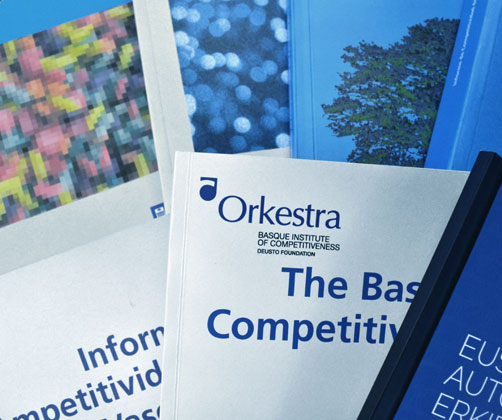NOTE: the authors of this post base their reflections on previous contributions by two senior researchers, Miren Larrea (2021; 2023) and Miren Estensoro (2021) as well as on informal conversations that have taken place at Orkestra.
"I feel I have to constantly demonstrate who I am and what I do. I must always prove myself and my scientific work" (M.L., pre-doctoral researcher 2023).
On the occasion of March 8th 2023, we chatted with young women who are working on their doctoral theses. Relationship models, invisibility, community growth... research and gender perspectives took centre stage.
These interviews served as a starting point for us to reflect on relationships and gender. Firstly, from the perspective of invisibility; and secondly, from the perspective of strategy. To do this, we have considered feminine and masculine styles. Feminine style refers to the behaviours most frequently observed in women, while the masculine style is associated with the attitudes we most often identify in men. Style is a characteristic that goes beyond gender: not all women have to follow a feminine style.
"As a young woman researcher, I feel that I carry all the surnames of invisibility on my shoulders" (M.D. pre-doctoral researcher, 2023).
Invisibility is a shared feeling. Relational practice at work is considered invisible, as is the facilitation of groups and individuals. Following Miren Larrea's reflections (2021; 2023), there are two ways of understanding achievement and effectiveness: one masculine and the other feminine. The first conceives growth from the individual capacity, while the second conceives it from the collective. The collective character is intimately linked to relationality; relational practice is considered invisible; and invisible work, abstract. In the words of Fletcher (2001), the structures of organisations and companies systematically make relational practice invisible. The key to combating this is to transform the tendency to perceive invisibility as an abstract characteristic since behind invisible work there are real practices and evidence. However, relational practice is often measured in indicators oriented towards productive results. According to Miren Larrea, relational practice must be given recognition, value and visibility. The vindication of this type of work, the visibility of the feminine style, and the demand for the transformation of trends are not arbitrary, they are positions that affect the wellbeing of the organisation.
“"As productivity is rewarded, care work is left in the shadows" (I.S. pre-doctoral researcher, 2023).
We begin with the idea that recognition is part of work structures, and that the feminine style is also strategic. We want to value relational models that combine personal growth with collective wellbeing. We believe that collective growth enables mutual assistance and collaboration. It also serves to centralise care and emotions. We do not refer to spaces in which experiences are shared; and even less to spaces where one is able to cry. What we intend to bring to the table is the possibility of exploring new forms of positioning in the workplace and opening up new ways of accompaniment. This approach seeks to move forward in the recognition of emotions and care, in the reading of one's own experiences from a new perspective. We are convinced that practices corresponding to the feminine style have a place in this context. We ourselves try to be guided by these patterns: the sense of awareness that has encouraged us to write these lines has also pushed us to create a working group of several doctoral students with the aim of speeding up each other's doctoral process. We believe that it is not appropriate to unload our work issues on those in our private lives (family, friends or partner, among others). We stress once again that the strategy goes beyond the merely rational and objective. The generation and consolidation of relational structures that promote community growth are also strategic (Estensoro, 2021).
Aware of the multitude of valid approaches to the complexity of the issue, we have chosen one in particular. We would like to stress, however, that there are several factors and layers that cover up the subject and that may have been left out of this brief overview. Overall, this reflection aims to address the significance of feminine style in academia, from the connection of the gender perspective and relational models. We began from the premise that first-person experiences are also shared experiences, which has led us to frame our own experiences in the literature on gender and institution, and to carry out an exercise in problematising them.

Maddalen Alkorta
Maddalen works as a predoctoral researcher at Orkestra, currently working on projects mainly related to welfare and smart business.

Naia Begiristain
Naia is a pre-doctoral researcher at Orkestra, where she works in the framework of action-research projects. Her current research areas are democratic dialogue, collaborative governance and participation. She incorporates these knowledge fields in the area of territorial development.
She holds a Bachelor's degree in Communication and a Master's degree in International Relations and Business Diplomacy at the University of Deusto. Naia is currently working on a doctoral thesis regarding the democratization of public policy co-generation processes, in which she places special emphasis on the contribution of dialogue and participation.














